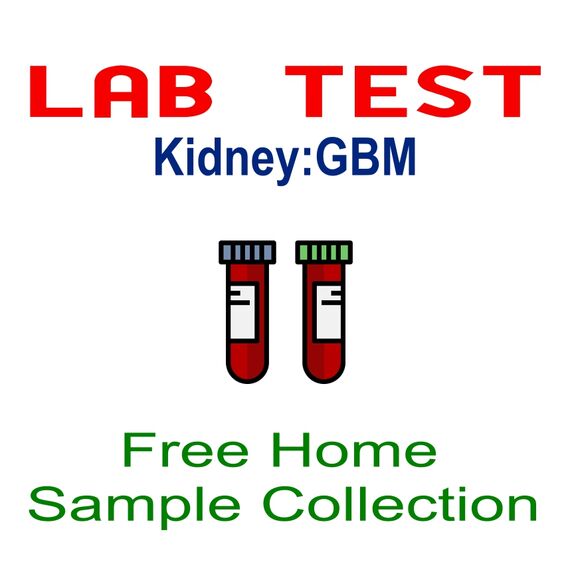This test is aslo known as GBM antibody test; Antibody to human glomerular basement membrane; Anti-GBM antibodies, Anti-glomerular basement membrane blood test.
Anti-glomerular basement membrane diseases (anti-GBM diseases) is a rare disorder that can involve quickly worsening kidney failure and lung disease.
Some forms of the disease involve just the lung or the kidney. Anti-GBM disease used to be known as Goodpasture syndrome.
Anti-GBM disease is an autoimmune disorder. It occurs when the immune system mistakenly attacks and destroys healthy body tissue. People with this syndrome develop substances that attack a protein called collagen in the tiny air sacs in the lungs and the filtering units (glomeruli) of the kidneys.
These substances are called antiglomerular basement membrane antibodies. The glomerular basement membrane is a part of the kidneys that helps filter waste and extra fluid from the blood. Antiglomerular basement membrane antibodies are antibodies against this membrane. They can damage the basement membrane, which can lead to kidney damage.
Sometimes, this disorder is triggered by a viral respiratory infection or by breathing in hydrocarbon solvents. In such cases, the immune system may attack organs or tissues because it mistakes them for these viruses or foreign chemicals.
The immune system's faulty response causes bleeding in the air sacs of the lungs and inflammation in the kidney's filtering units.
Input your data
Your healthcare provider may recommend a GBM test based on your signs and symptoms as below:
Early Symptoms - Include:
- fatigue, or feeling tired
- weakness
- anemia
- general body discomfort or pain
- nausea and vomiting
The above symptoms may appear before or along with symptoms of lung and kidney problems like:
Symptoms of lung problems - Includes:
- coughing up blood
- dry cough
- shortness of breath
- chest pain
Symptoms of kidney problems - Includes:
- pink or cola-colored urine from blood in your urine, or hematuria
- swelling in your feet and legs, or edema NIH external link
- high blood pressure, or hypertension
- foamy urine due to too much protein, or proteinuria

No special preparations required.
None
Dummy Test
Type the specimeny type like blood, urine or any other specimen required.
Sample report in a format
Aucun avis trouvé


